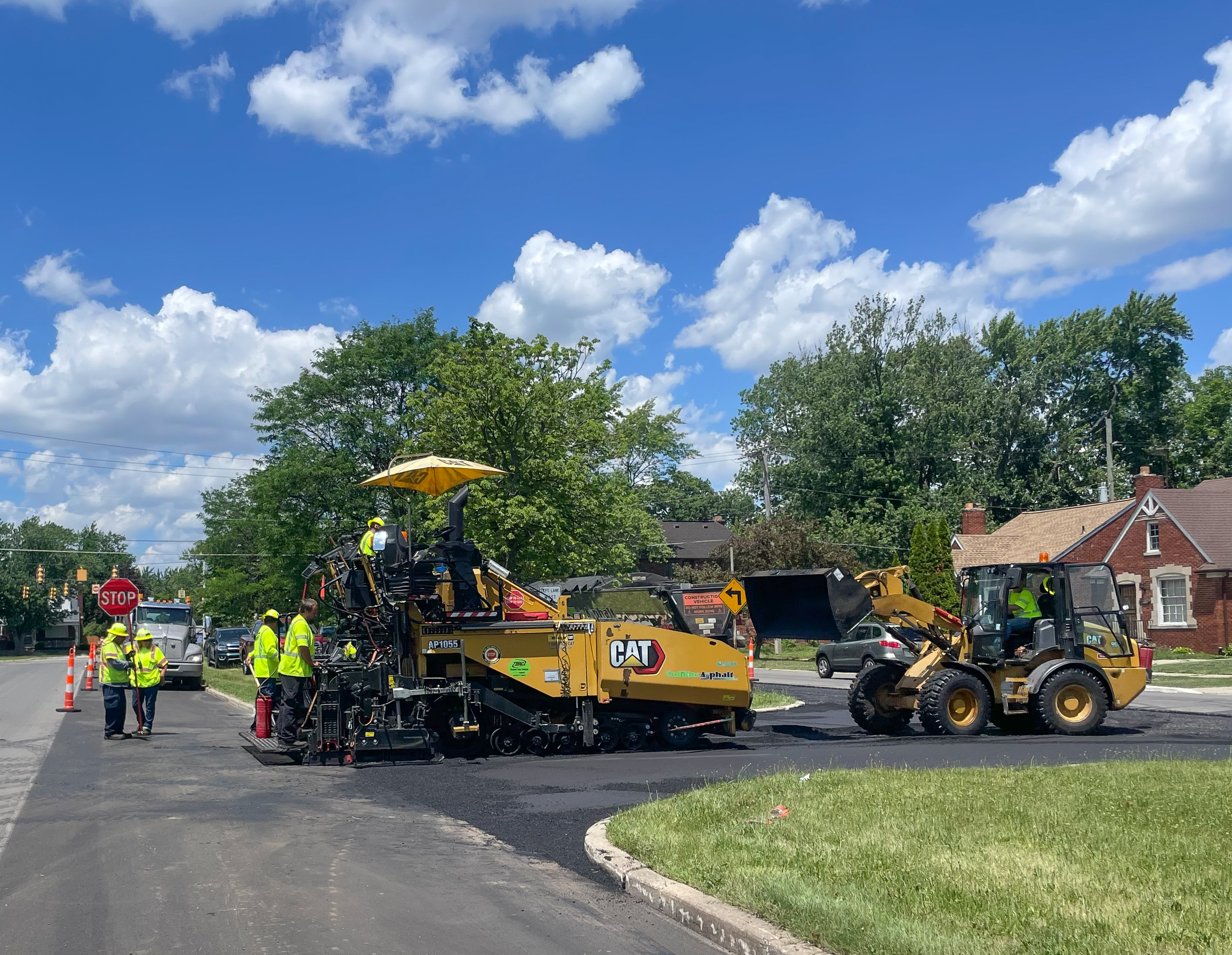Products
Porous Asphalt
Porous Asphalt (permeable asphalt) enables water to pass through the pavement amazingly fast.

Porous Asphalt wears well and tends not to exhibit cracking and pothole formation problems, even in Michigan’s extreme freeze-thaw cycles.
Porous Asphalt can also provide storm water management through perforated pipes in the underlying stone bed, which distribute the water evenly. This eliminates the need for expensive detention basins.
Porous Asphalt promotes the natural filtration of surface contaminants and cleanses storm water by eliminating run-off.
Facts
Porous Pavements Can Be Used to Obtain Leed Credits for Storm Water Management
Porous asphalt pavements, which feature an open-graded asphalt surface over a stone recharge bed where storm water is stored, provide two major benefits: first, they decrease runoff and increase infiltration; second, they help to improve water quality. A porous asphalt parking lot can earn two LEED credits:
- LEED Credit for controlling the quantity of runoff
- LEED Credit for improving water quality
The same open-graded asphalt surface that is used for a porous pavement structure can also be used simply as a surface mix on top of a dense-graded pavement. Studies showing that such surfaces reduce pollutant loads, such as an open-graded surface, may earn one credit for improving water quality.
The LEED certification process is overseen by the USGBC (U.S. Green Building Council). It is usually the general contractor or the architect who is responsible for getting the project certified; the asphalt contractor on a LEED project will interact with them and supply documentation of materials and processes beyond what is required for most jobs. For more information please visit www.usgbc.org.
Talk with a Cadillac Asphalt expert today to find out how the latest technological developments can improve the quality of your next project and reduce the carbon footprint your company leaves on the surrounding community.
